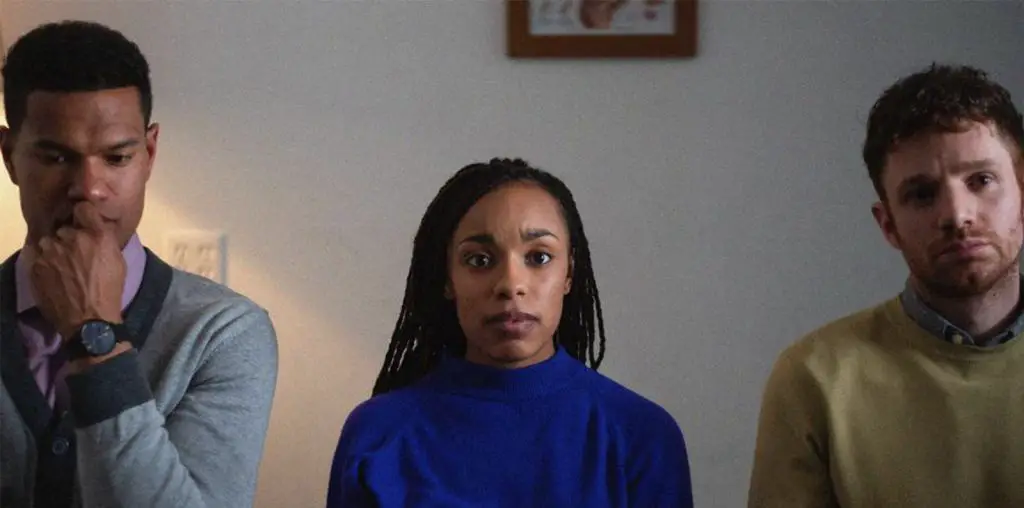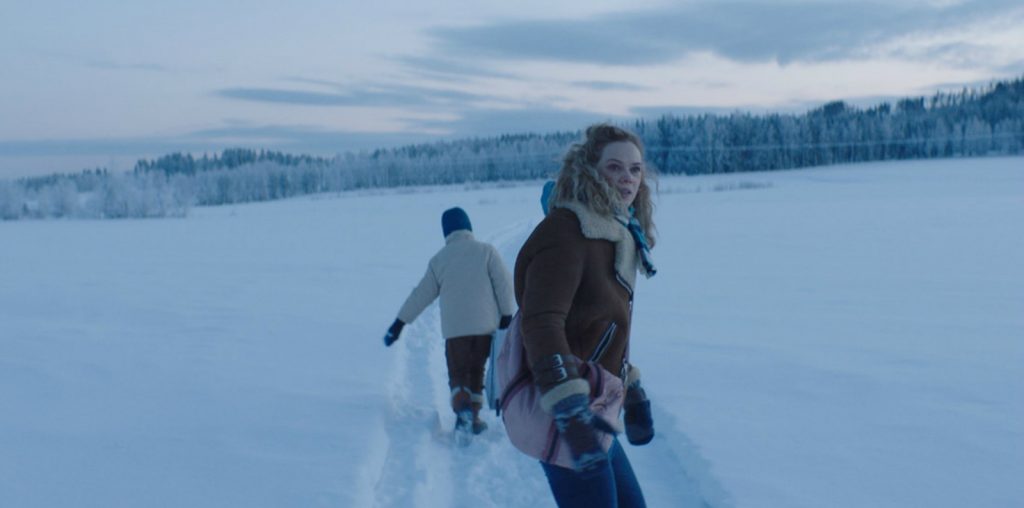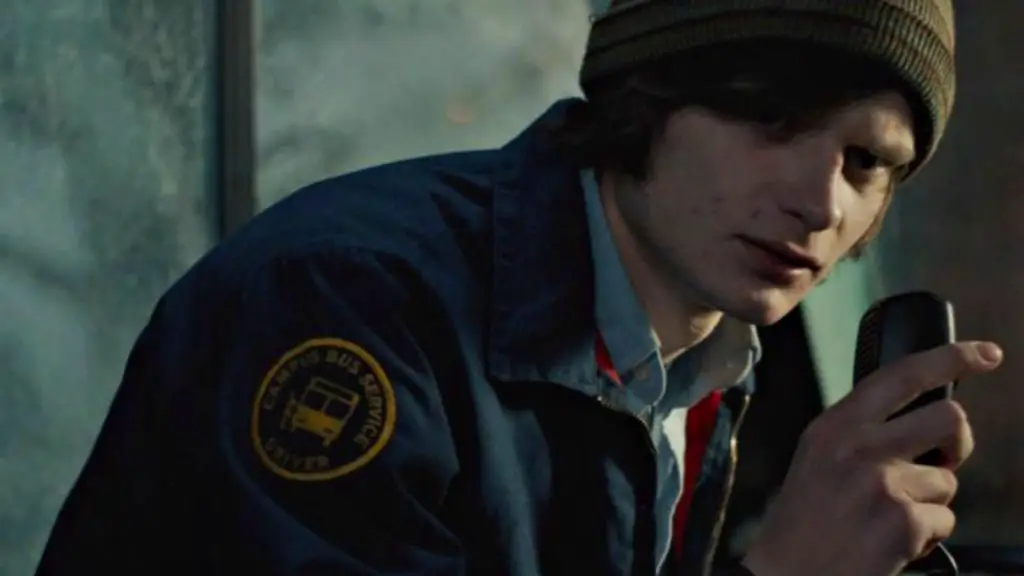
The result is both life-affirming and hopeless, as Joseph and Dinah take on specific roles in conveying the right and wrong ways to face one’s demons. One of them chooses vengeance, while the other chooses forgiveness. With revenge, you’re immediately trapped in another cage, and you’re now a slave to your subconscious. With mercy, you show the one who wronged you that you are superior to them by not letting their misdeed define your wrath or disrupt the life you’ve built after weathering that horrendous experience.
The Virtues harmonizes well with Meadows’ other works, which also have an unadorned directness to their themes and a naturalistic appeal to the immensely flawed characters. The series establishes a verisimilar aesthetic through Matthew Gray’s clever editing. If you want to endure puncturing suspense, stare in awe at the parallel editing in the last 20 minutes of the final episode. Nick Gillespie’s unassuming cinematography nicely captures Joseph’s perspective through fluctuating hand-held and lyrically still camera shots. The show also boasts a raw alternative rock and punk blues soundtrack performed by English musician and singer-songwriter PJ Harvey.
Graham embodies the tragic tale with a soul-piercing gaze and expression that communicates palpable unrest. Alongside Graham’s brilliantly subdued and honest performance, Algar’s flinty performance as Dinah grows increasingly layered as her storyline progresses. Dinah’s frivolous demeanor and acidulous tone are memorable attributes, but her doleful eyes and ebullitions of ire are the perfect tells to her unhappiness. Behan also delivers an emotionally involved performance as Anna. I also can’t help but applaud the one-scene performances from Liam Carney, who frustratingly plays the vile Damon, and Aisling Glenholmes, as the supercilious and pious Apphia, Dinah’s moralistic mother.
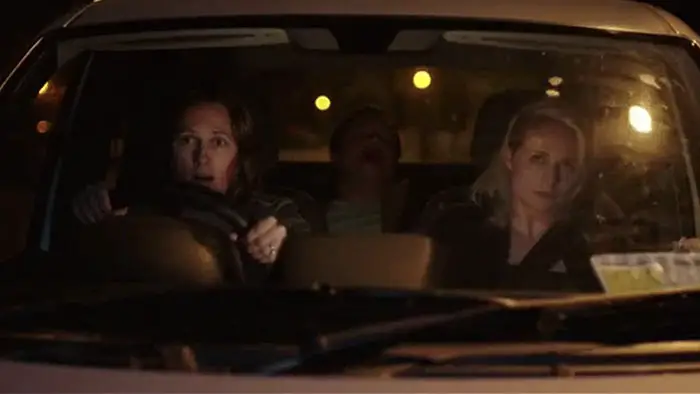
“…the interactions flow naturally, and the emotion is earned.”
Because of Meadows’ veristic craft, the interactions flow naturally, and the emotion is earned. The shock of the brother-sister reunion is too much to bear without them breaking down in tears or being at a loss for words. It’s as if there’s no script for this conversation, just siblings attempting to reconnect after being separated for over thirty years. The Virtues is full of such genuine moments, it’s as if Joseph is real and the subject of a documentary. In one way or another, Joseph is an extension of Meadow, who suffered from abuse similar to what the character of Joseph experienced from (which I’ll keep concealed for spoiler purposes). While Dinah doesn’t get as much development as Joseph, but they both serve a purpose in bringing this dolorous tale of survival, regret, and abuse to life.
It may seem like The Virtues is exercising an exhaustingly plaintive story for the sake of being somber. But there’s a lot more behind the character’s trauma that demonstrates the characters as human. Joseph and Anna’s sibling relationship is met with abrupt joy and self-blame. Joseph’s relationship with his son keeps him grounded, but when his son is unreachable, alcohol transiently suppresses Joseph’s sadness. Joseph and Dinah’s relationship appears to be the most beneficial, seeing as they’re both clashing with their past, but the script doesn’t take the easy way out. Instead, the writers imagine every person’s trauma as its own monster with its own implications. Between Joseph, Dinah, and another character named Craigy (a heartbreakingly withdrawn Mark O’Halloran), their regrettable pasts lead to clemency, revenge, or self-infliction.
Anchored by breathtakingly raw performances from Graham and Algar, The Virtues is a grounded drama that takes viewers through the arduous manifestation of repressed trauma. But there is hope. Shane Meadows understands, even in the most devastating times, you harness the providential power to forgive, and can find the courage to live on because not everybody does.
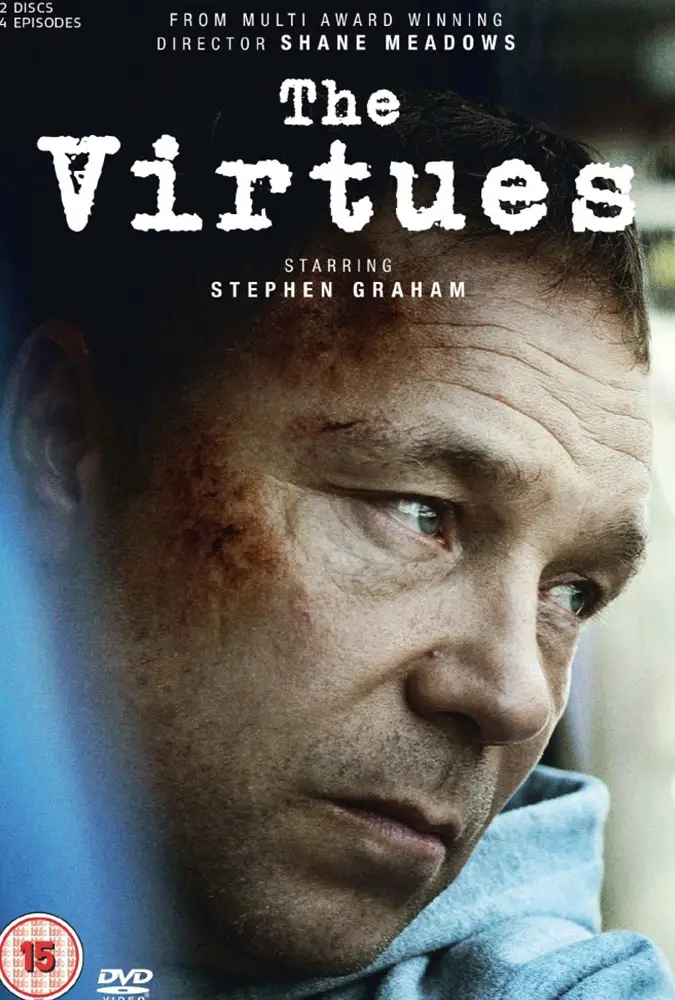
"…an indisputably mournful and gut-wrenching drama..."
